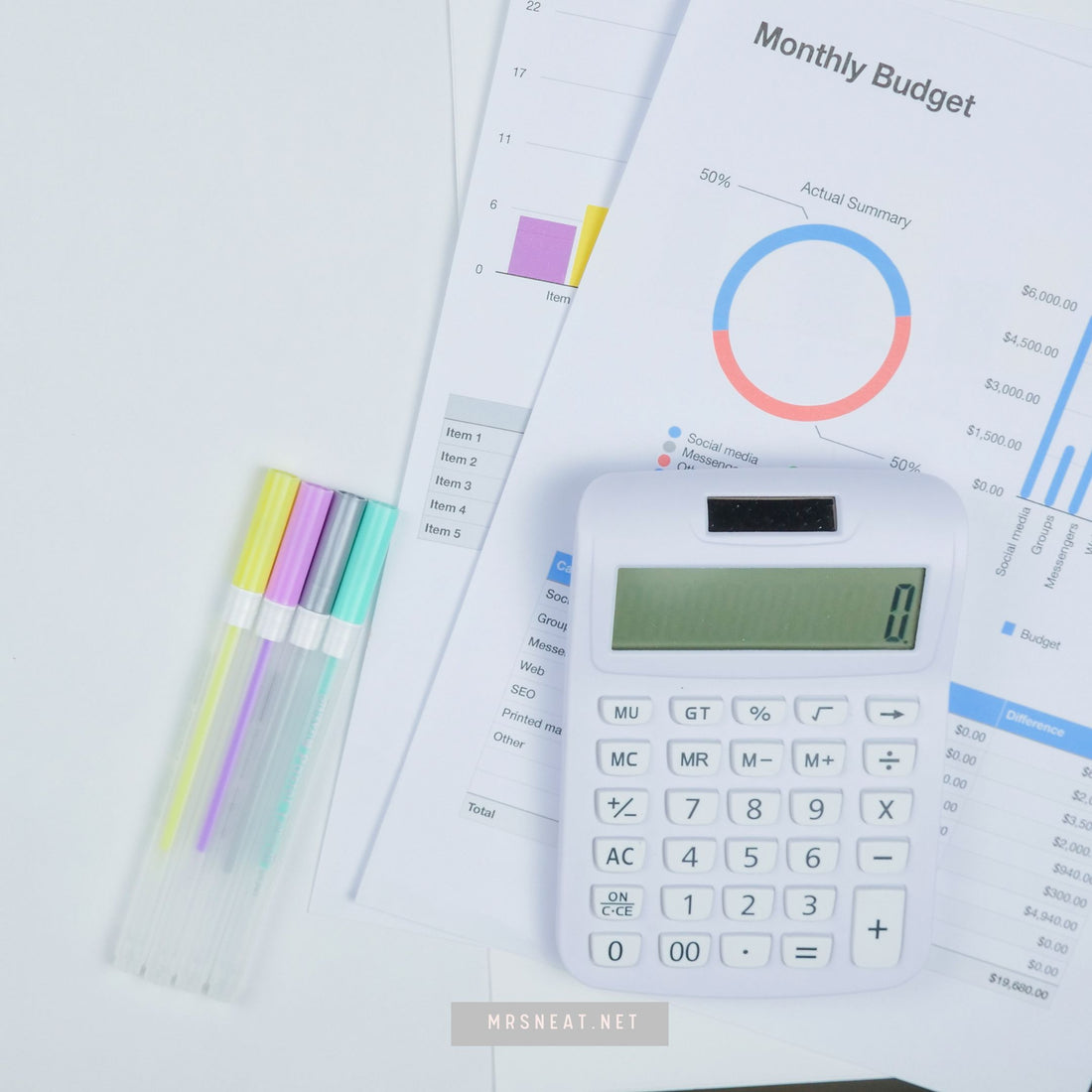
How Budget Planner save My Financial Life
maris wariShare
When I just graduated from college and was starting my first job. I was excited to have a steady income and wanted to make the most of it, but I wasn't sure where to start.
Thankfully, I read a blog about budget planner. At first, I was hesitant - the idea of tracking every penny seemed tedious and unnecessary.
But in that blog explained that a budget planner could help me better understand my spending habits and make smarter financial decisions.
I finally decided to give it a try and downloaded a budget planner and use it on my binder .
I started logging every purchase, from my morning coffee to my rent payment, and was surprised to see how quickly the small expenses added up.
But more importantly, I was able to see areas where I could cut back and save money.
With the help of budget planner, I was able to identify unnecessary expenses and adjust my spending habits accordingly.
I even started setting aside money for an emergency fund and investing in a retirement account.
Over time, I started to see the benefits of using a budget planner. I felt more in control of my finances and less stressed about money.
By sticking to a budget and making financially responsible choices, I was building a foundation for a stable financial future.
So, if you are looking for an easy and effective way to manage your budget and finances?
My highly recommended tool is a budget planner .
Here are 29 benefits of using a budget planner you need to know :
1. Helps you track your spending and identify where your money is going.
2. Allows you to set financial goals and track your progress towards them.
3. Helps you prioritize your spending.
4. Allows you to make informed decisions about your finances.
5. Helps you avoid overspending.
6. Helps you save for emergencies.
7. Helps you save for major purchases like a car, house or vacation.
8. Helps you identify areas where you can cut back.
9. Helps you plan and budget for upcoming expenses.
10. Reduces stress and anxiety around money.
11. Helps you avoid unnecessary debt.
12. Encourages you to live within your means.
13. Helps you plan for retirement and other long-term goals.
14. Encourages you to save for the future.
15. Helps with financial planning.
16. Helps with tax planning.
17. Helps you avoid impulse purchases.
18. Helps you track your debt repayment progress.
19. Helps you build your credit score.
20. Helps you understand and manage your cash flow.
21. Allows you to take control of your finances.
22. Helps you make better spending decisions.
23. Helps improve your financial literacy.
24. Helps you develop good financial habits.
25. Builds self-discipline and self-control.
26. Allows you to live a balanced life.
27. Promotes clear and concise communication about finances with your partner and/or family.
28. Provides financial security and peace of mind.
29. Encourages you to save for your retirement.
These are just a few of the many benefits of using a budget planner – from basic financial planning to long-term financial success, it can be an incredibly powerful tool for anyone who wants to take control of their finances.
How to use a Budget Planner
If you're interested in trying out a budget planner, there are many templates available in here.
The first step in using a budget planner printable is to choose one that suits your needs.
Once you've chosen a printable, follow the subsequent steps:
Determine your Income:
Start by calculating your monthly income, which includes your salary, investment income, and any other sources of revenue.
List your Expenses:
Next, make a list of all your regular and essential expenses, including rent, mortgage payments, utilities, grocery bills, and transportation expenses.
Set your Goals:
Then, set your financial goals for the month.
You might want to allocate funds for savings, debt repayment, or additional investments.
Add Categories:
Add additional categories to your expenses list, such as entertainment, personal care, and travel.
Estimate Expenses:
Determine the amount you are going to spend on each category of expenses.
You can estimate this by reviewing your previous months' finances or by using other sources of financial planning.
Sum up your Expenses:
Sum the total for each category of expenses and compare it to your income.
Adjust your Budget:
If you're spending more than your income, identify the categories where you can reduce expenses.
This could mean cutting down on dining out or recreational activities.
Mark your Progress:
Once your budget has been set, begin filling it out.
Check off each expense as you pay it.
This will allow you to keep track of your spending and ensure that you're not exceeding your budget.
Review and Repeat:
Review your budget regularly and adjust it accordingly each month.
Using a budget planner printable can help you stay organized and in control of your finances.
Additionally, keeping an eye on your spending and creating a budget can help you make smarter spending decisions and improve your financial health in the long run.
With a budget planner, you can easily organize your income and expenses, set financial goals, and track your progress all in one place.
Our popular planners are monthly budget templates, debt payoff trackers, and savings goal trackers.
By using a budget planner, you can take control of your finances and make smarter financial decisions.
With these simple steps, you can get started on the journey to achieving your financial goals.
Related content;
- How a Printable Budget Tracker Can Transform Your Finances
- The ultimate paycheck budget printable to help you maximize your paycheck
- Master Your Finances with Our Monthly Budget Planner
Remember to review your budget regularly and adjust it as needed while making a conscious effort to minimize your expenses.
In time, you'll experience the benefits of budgeting, including less financial stress, increased savings, and financial freedom.
So why not give it a try?
Try our budget planner, and see how much it can help improve your financial situation!





 https://www.linkedin.com/in/mariswari/
https://www.linkedin.com/in/mariswari/



